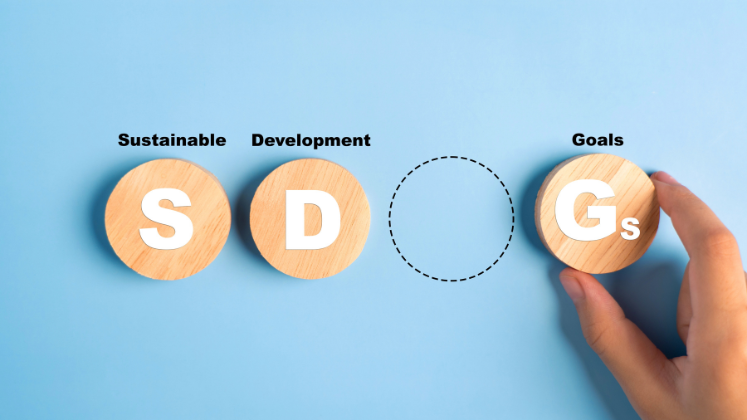The humanities can make a significant contribution to both the realisation of the UN Sustainable Development Goals and to the design of Australia’s new national assessment model. Kylie Message argues that to do so requires a generous approach toward assessment methodologies and an attentiveness to the power of narratives to shape and articulate research impact.
The UN Sustainable Development Goals (SDGs) have had a direct influence on and have been swiftly conscripted by universities around the world as ways of framing institutional priorities. They have gained global ranking league tables and are used by research institutions and metrics providers to define “what matters”.
This has not been without criticism. In a recent LSE Impact Blog post, Elizabeth Gadd, Vice-Chair of COARA, identified a disconnect between targets and indicators used by the SDGs and those used by the THE Impact Rankings methodology. Although the latter may boost the reputations of universities, Gadd argued that the effort of complying with the guidelines may also diminish their ability to make real world contributions. She also observed how contributions to SDGs run along disciplinary lines to the disadvantage of humanities research. These observations can be extended to the SDGs themselves, which employ metrics that were developed and applied without meaningful contributions from the people, communities, and broader contexts they are designed to assess.
Whatever form a new national impact measurement system takes in Australia, especially if it is linked to the SDGs, to work it needs to be multi-disciplinary and recognise the contribution of the humanities.
In Australia, these issues are timely because the Australian Research Council has undergone reviews culminating in a recommendation by the Australian Government for the university and research sector to: “develop a framework for regular evaluation and reporting on the outcomes of the NCGP [National Competitive Grants Program] over a timeframe that allows the full impact of research funding to be assessed and the public benefit explained”. At the time of writing, we do not know what to expect of the new model, so evidence from COARA and similar organisations are being scrutinised.
Whatever form a new national impact measurement system takes in Australia, especially if it is linked to the SDGs, to work it needs to be multi-disciplinary and recognise the contribution of the humanities. This is because, as a recent UCL report outlined: “The humanities offer a vast reservoir of parallels and examples of human behaviour, across time and space, which can help us to think about probable outcomes and to imagine new possibilities”.
A humanities shaped gap in SDG metrics
People and human wellbeing are centrally positioned within Agenda 2030 (the global framework supporting the SDGs), as is the accompanying assumption that “culture” is fundamental to achieving the goals. However, while there is some potential for understanding the contribution of culture through the agenda’s third pillar of society/social responsibility, the acknowledgement of culture’s contributions is limited and goes almost completely un-articulated. An explicit reference to culture exists just once in the SDGs, under SDG 11: Sustainable Cities and Communities.
The people-centred pathways and aspirations of Agenda 2030 have also been widely criticised by First Nations Peoples. Some have supported demands for culture to be recognised as the fourth pillar of sustainable development. Others reject outright the legitimacy of the SDGs arguing they “produce, protect, and perpetuate ongoing colonisation, White privilege and possession, and ultimately harm Indigenous Peoples, their country and homelands”.
Without culturally relevant indicators and forms of expression that are designed by and with targeted communities, national SDG reporting efforts will be inaccurate.
Without culturally relevant indicators and forms of expression that are designed by and with targeted communities, national SDG reporting efforts will be inaccurate. Further, the indicators and results may appear detached from human experience and relevant only to those taking count. Inappropriate indicators may ultimately create perverse outcomes and incentivize communities and practitioners to adapt and respond to meet ill-conceived goals.
Re-centring human lives and stories
People are missing from the 2030 Agenda, as are the ways that people think, communicate, and create meaning. The absence is not just evident in what the SDGs address, but also in how they have been formulated and how progress is conceptualised and reported on. This problem arises at least in part from applying a metrics-driven approach.
One way of addressing this gap could be a narrative approach, treating the SDGs as a form of expression, even storytelling, that can emphasise that frameworks of evaluation and their desired outcomes are neither neutral nor objective. By including methodologies that comprise humanities and related research in culture and development fields, work can begin to redress issues including the legacies of colonisation.
In particular, recognising and retelling the past to include a wider range of voices and worldviews in the stories universities, governments, and societies tell and teach is almost impossible without the humanities. This is because the humanities draw from and across diverse sets of knowledges and information to understand human cultures and the implications for human life of even the hardest of “hard” scientific research, or the smallest or quietest expression of curiosity. They are characterised by a commitment to critical thinking and contextualised (often collectively) produced knowledge.
Narrative approaches facilitate this work of understanding. They can foreground the voices of diverse peoples speaking about the impact that research, or the attempts to apply the SDGs, have had on their communities and lives. Narrative also has the potential to express value across different constituencies. It can challenge traditional forms of authority and power to the benefit of communities.
In an ideal world, researchers would also become adept at articulating the impact of their work while evaluation systems concurrently become responsive to capturing a broader array of benefit
Assessment frameworks need to be flexible enough to accommodate value sets defined by researchers or communities. While this openness makes the processes of writing up and assessing research case studies increasingly time-consuming, it should be considered time well spent. In addition to more accurate reporting, outcomes would include more highly skilled (and ideally better supported) assessors, who are challenged to move beyond disciplinary or personal biases. It would counter the instrumentalization of assessment tasks and minimise the risks of gaming template or keyword focused models.
If assessors engage with outputs and case studies using generously informed methods, peer review, and recognise different points of cultural authority they will be more able to identify value in context of knowledge over a period that extends far beyond a policy or funding cycle. In an ideal world, researchers would also become adept at articulating the impact of their work while evaluation systems concurrently become responsive to capturing a broader array of benefits.
The political capital and public familiarity enjoyed by the SDGs makes them a convenient framework for national assessment exercises to adopt to evaluate the non-academic impact of research. However, to report accurately and with value, assessment systems and tools must – as the SDGs should also – be agile (not set in stone one size fits all), and able to justify their own impact beyond technical application. This competency requires a fluency and openness to the stories told by and to the communities, outputs, and researchers they evaluate.
The content generated on this blog is for information purposes only. This Article gives the views and opinions of the authors and does not reflect the views and opinions of the Impact of Social Science blog (the blog), nor of the London School of Economics and Political Science. Please review our comments policy if you have any concerns on posting a comment below.
Image Credit: Tegan Mierle via Unsplash.







